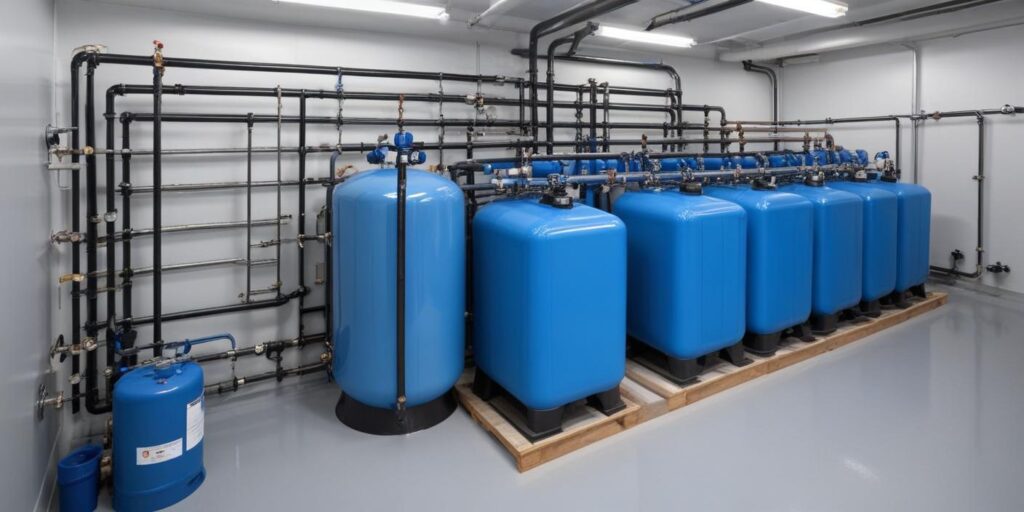Water is essential for life, but not all water is created equal. For homeowners and plumbers alike, ensuring that water is clean, safe, and pleasant to use is paramount. But what is the most effective water treatment? This guide will explore the world of water treatment, providing insights and practical tips for choosing the best method for your home.
Introduction
Clean water is vital for health, hygiene, and household convenience. For homeowners, having access to treated water means protecting their family from potential health risks. Plumbers, on the other hand, need to stay informed about water treatment options to offer the best solutions to their clients. This comprehensive guide will walk you through everything you need to know about water treatment, from common contaminants to choosing the right system for your needs.
Common Water Contaminants
Understanding the Threats in Your Water
Water may look crystal clear, but it can harbor a variety of contaminants. Common water contaminants include bacteria, viruses, heavy metals, and chemicals. Knowing what might be lurking in your water is the first step in selecting an effective treatment method.
Health Risks Associated with Contaminants
Each contaminant poses unique risks. For instance, bacteria like E. coli can cause severe gastrointestinal illness, while lead exposure can lead to developmental issues in children. Long-term exposure to chemicals like pesticides and industrial solvents has been linked to cancer and other chronic conditions. Understanding these risks underscores the importance of investing in a reliable water treatment system.
Testing for Contaminants
Before jumping into treatment options, testing your water is crucial. Home testing kits are available, but professional testing provides a more comprehensive analysis. This will help you identify specific contaminants and choose the most suitable treatment method for your household.

Types of Water Treatment
Filtration Systems
Filtration is one of the most common water treatment methods. It involves passing water through filters to remove contaminants. Filters can vary from simple activated carbon filters to more complex multi-stage systems.
Distillation
Distillation works by boiling water and then condensing the steam back into liquid, leaving contaminants behind. This method is effective for removing a wide range of pollutants, including bacteria and heavy metals. However, it can be energy-intensive and slow.
Reverse Osmosis
Reverse osmosis (RO) systems use a semipermeable membrane to remove ions, molecules, and larger particles from water. It’s highly effective at purifying water but can be wasteful as it produces a significant amount of wastewater.
Pros and Cons of Each Method
Each water treatment method has its advantages and limitations. Filtration systems are generally easy to install and maintain but may not remove all types of contaminants. Distillation is thorough but slow and energy-consuming. Reverse osmosis offers high purification levels but can be expensive and wasteful.
Factors to Consider for Home Water Treatment
Household Water Testing
Testing your water is the first step in determining the most effective treatment method. A water test will reveal which contaminants are present and at what levels. This information is critical for choosing the right system.
System Capacity and Efficiency
Different households have different water usage patterns. A system’s capacity and efficiency should align with your daily water needs. Larger families may require a high-capacity system, while smaller households can opt for more compact solutions.
Maintenance and System Lifespan
Regular maintenance is essential for the longevity and effectiveness of any water treatment system. Consider the ease of maintenance and the expected lifespan of the system when making your choice. Some systems require frequent filter changes, while others need less regular upkeep.
Choosing the Right Water Treatment System
Tailoring the System to Your Needs
No two households are the same, and neither are their water treatment needs. Tailoring your system involves considering your specific water quality concerns, household size, and personal preferences. For example, if lead contamination is your primary concern, a filtration system designed to remove heavy metals would be ideal.
Installation, Space, and Budget
The practicality of installation, available space, and your budget are crucial factors. Some systems require professional installation, while others are more DIY-friendly. Space constraints can also dictate whether you opt for an under-sink unit or a whole-house system. Budget plays a significant role, too, as prices for water treatment systems can vary widely.
Final Thoughts
Water treatment is not just a luxury; it’s a necessity for safeguarding your family’s health. Understanding the different contaminants, treatment methods, and factors to consider can help you make an informed decision. By investing in the right water treatment system, you ensure that every drop your family consumes is pure and safe.
If you’re ready to take the next step in improving your home’s water quality, start by testing your water and exploring the treatment options that best suit your needs. Share this guide with friends or family who might benefit from it and join our community of homeowners committed to clean, safe water.
When it comes to reverse osmosis (RO) systems, look no further than Van Marcke Plumbing Supply. We offer a selection of the best RO systems on the market, designed to provide you with top-notch water purification at unbeatable prices.
With a commitment to quality and customer satisfaction, Van Marcke ensures that you can enjoy fresh, clean water without breaking the bank. Explore our range of RO systems to find the perfect fit for your household’s needs and elevate your home’s water quality today!